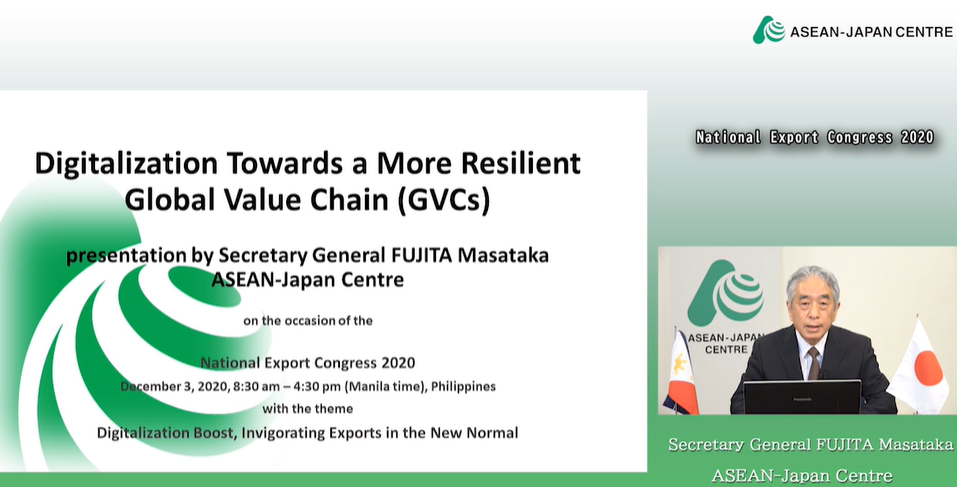
ASEAN-Japan Centre (AJC) Secretary-General Fujita Masataka reported that many countries had felt disruptions of supply chains in this time of the pandemic. Hence the series of calls at the international and regional level for strengthening and rebuilding of value chains such that of the G20 Actions to support world trade and investment in response to COVID19 on 14 May 2020, and the Hanoi Plan of Action on Strengthening ASEAN Economic Cooperation and Supply Chain Connectivity in Response to the COVID19 pandemic on 19 June 2020.
To achieve resilient GVCs, the Secretary-General called for the need to adopt strategies such as:
(1) Implementing and utilizing policy measures and actions related to production and supply chains (GVCs).
(2) Improving risk management in the private sector.
(3) Pushing for strong digital transformation by both public and private sectors.
(4) Promoting new and crisis-resistant industries.
(5) Reconsidering company strategies for international production.
It is important to note that digitalization plays a crucial role in achieving resilient GVCs. “The issue of resilience doesn’t come out on the current pandemic only. What we have to do is not to return to the previous level of resilience, but move to a level higher than before.”, said Masataka.
The AJC Secretary-General presented this during the National Exporters Congress jointly organized by the Export Development Council (EDC), DTI – Export Marketing Bureau (EMB), and Philippine Exporters Confederation, Inc. (PHILEXPORT) on 03 December 2020. To know more about GVC resilience, download or view the copy of the October 2020 issue of the “Resilient Global Value Chains (GVCs) for ASEAN and its Relationship with Partner Countries” on the ASEAN-Japan Centre’s website (https://www.asean.or.jp/en/centre-wide/resilient_gvcs/). KJDA
